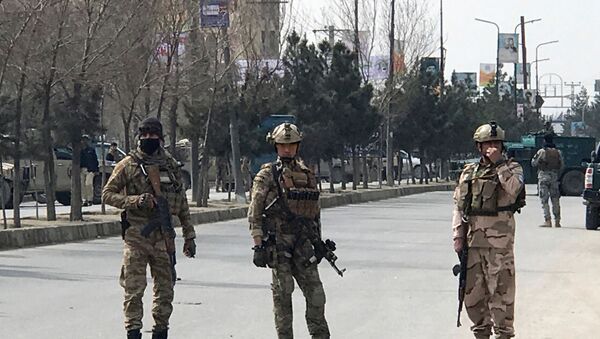On Wednesday, Ghani ordered the release of just 1,500 of the 5,000 Taliban prisoners held by the Afghan government, promising the other 3,500 would be freed after negotiations with the militant group begin, and only if there is a tangible reduction in violence.
In turn, the Taliban was to release 1,000 government prisoners. The deal was struck last week between US and Taliban negotiators in Doha, Qatar, who sought to secure US exit from Afghanistan. Representatives from Ghani’s government, not recognized by the Taliban, were not present. However, the deal included a pledge by the Taliban to begin negotiations with the Kabul government, and the prisoner release was to be a major step toward those talks.
"We reject Ghani's phase release of prisoners," Taliban spokesperson Suhail Shaheen told Al Jazeera Wednesday, reiterating that a “conditional release” was against the agreement signed with the US. "We will also make sure at the time of the prisoners release that they are releasing the list of prisoners we have provided them with. Once this is done, we will proceed with the intra-Afghan talks."
“This may be a deal-breaker this early on,” Brian Terrell, longtime peace activist and co-coordinator of Voices for Creative Nonviolence, told Radio Sputnik’s Loud and Clear Wednesday, noting it “somehow shouldn’t be a surprise.”
“Ghani was not a part of this negotiation, but the US made the deal,” Terrell said, noting, “the Afghan Women’s Network made a statement a little while ago saying that ‘this is little more than division of power and resources among the Taliban, warlords and political strongmen.’”
“There’s no way forward that is not risky, but the riskiest thing is the status quo. And I’m sorry to be pessimistic, but this is not even a step, not even a step in the right direction,” he told hosts Brian Becker and John Kiriakou.
“From the time of the [Jimmy] Carter administration - and arming and training and giving diplomatic cover for the Mujaheddin, who later became both the Taliban and al-Qaeda - this has always been, from the beginning of US involvement in the area, a very cynical bunch of moves over the years,” Terrell said, noting the US bounces between different warlords according to political expediency.
When Ghani was sworn in for a second term as president of Afghanistan on Monday, his rival in the September 2019 election, Abdullah Abdullah, also declared himself president, saying Ghani’s votes were stolen. Abdullah was Ghani’s chief executive, the effective head of government, after he narrowly lost the 2014 elections to Ghani.
“Neither side has any kind of legitimacy. You can’t have an election in this kind of situation,” Terrell said.
However, the peace activist said the US was never seriously interested in either nation-building or democracy in the Central Asian country, which is why the nearly 19-year-long war has continued.
“It’s never been about women’s rights, never been about democracy. I think one of the things most feared at this point is an Afghanistan at peace, with human rights and with peaceful relations with its neighbors, which include China, Iran and former Soviet republics. This stirring the pot and keeping this war going is in the interest of the United States at this time, and it will continue until the US leaves,” Terrell told Sputnik.
“The United States owes reparations very definitely, and there’s nothing that’s going to happen, there’s no panacea, there’s no quick fix, there’s nothing that we can think of that’s going to happen in the next months or next years that’s going to immediately bring peace to Afghanistan,” Terrell said. “But as long as the US troops remaining is conditional on peace, on the cessation of violence, when the US troops are the main provocation of that violence, the war will be perpetuated.”

